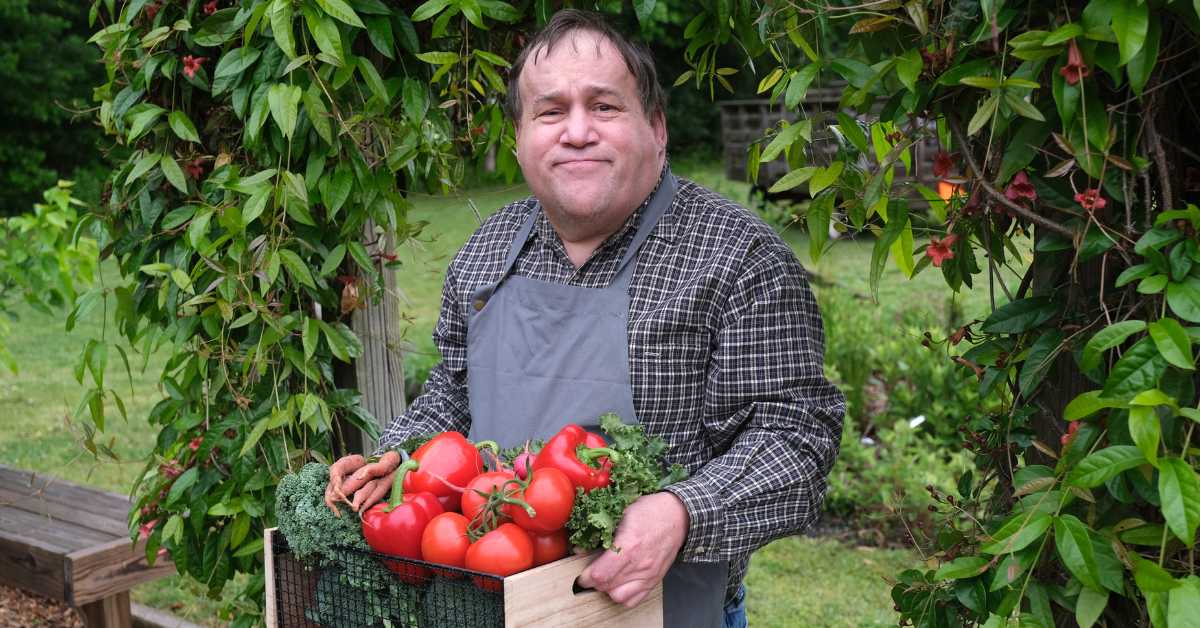Adult Learning Never Stops – Life Skills for Independence
The journey toward independence doesn’t end when someone turns 18 or graduates from school. For adults with intellectual and developmental disabilities, learning new skills and refining existing ones is a lifelong process that opens doors to greater autonomy, confidence, and quality of life. We believe that every adult deserves the opportunity to continue growing, learning, and achieving their personal goals, regardless of their abilities or age.
For over 60 years, the Trudeau Center has been transforming lives by providing comprehensive support services that recognize the potential in every individual. Our Adult Services programs demonstrate that with the right support, encouragement, and evidence-based approaches, adults with differing abilities can master new life skills and increase their independence in meaningful ways.
The Foundation of Independent Living
Life skills encompass the practical abilities that enable individuals to manage daily activities and participate fully in their communities. These skills range from basic self-care routines like personal hygiene and meal preparation to more complex abilities such as managing finances, using public transportation, and maintaining relationships.
For adults with intellectual and developmental disabilities, developing these skills often requires specialized instruction, consistent practice, and supportive environments. The key is breaking down complex tasks into manageable steps and providing opportunities for repeated practice in real-world settings.
Building Skills Through Daily Activities
The most effective life skills instruction happens within the context of everyday activities. Rather than learning skills in isolation, adults benefit from practicing new abilities during meaningful daily routines. This approach helps ensure that skills transfer to real-life situations and become sustainable over time.
Cooking provides an excellent example of comprehensive life skills development. Through meal preparation, individuals practice following multi-step directions, measuring ingredients, managing time, ensuring safety, and maintaining cleanliness. These same skills transfer to other areas of independent living, from organizing personal spaces to following workplace procedures.
“We see remarkable growth when adults have opportunities to practice life skills in authentic settings,” explains Charlotte Higham, Vice President of Adult Services at the Trudeau Center. “Whether someone is learning to use public transportation for the first time or mastering budgeting skills, the confidence they gain extends far beyond the specific task. It empowers them to approach new challenges with greater self-assurance and determination.”
Employment and Technology as Learning Pathways
Meaningful employment serves as both a goal and a vehicle for developing essential life skills. Through the Trudeau Center’s Employment Concepts program, adults learn workplace communication, time management, problem-solving, and social interaction skills that enhance their overall independence.
Today’s adults also have access to assistive technologies that can significantly enhance their independence. Smartphone apps can provide step-by-step cooking instructions, medication reminders, or navigation assistance. Video calling enables individuals to maintain relationships with family and friends. Learning to use these technologies effectively requires instruction and support, but the payoff in terms of increased independence is substantial.
Social Skills and Community Connections
Independence involves more than managing practical tasks; it also requires the ability to form relationships, communicate effectively, and participate in community activities. Social skills instruction helps adults learn to initiate conversations, express their needs and preferences, resolve conflicts, and maintain appropriate boundaries in different settings.
“The social aspect of independence is just as important as practical skills,” notes Mark Rowe, Program Manager with Adult Services at the Trudeau Center. “When adults feel confident interacting with others and participating in community activities, their quality of life improves dramatically. They develop a sense of belonging and purpose that enhances their overall wellbeing and motivation to continue learning.”
Creating Supportive Learning Environments
Successful adult learning requires environments that balance challenge with support. Adults need opportunities to practice new skills independently while knowing that assistance is available when needed. Family members and caregivers play crucial roles by reinforcing skills practiced in formal programs and creating opportunities for practice at home.
The Ripple Effect of Independence
As adults with intellectual and developmental disabilities develop greater independence, the positive effects extend throughout their support networks. Families experience reduced stress knowing their loved ones have essential life skills. Communities benefit from the contributions of engaged, capable citizens. Most importantly, the individuals themselves experience the dignity and satisfaction that comes from increased autonomy and self-determination.
Adult learning truly never stops, and the Trudeau Center remains committed to supporting individuals throughout their lifelong journey toward greater independence. Through comprehensive day programs, employment services, residential supports, and community-based instruction, we continue our 60-year legacy of empowering adults with differing abilities to live fulfilling lives in their communities. The path to independence looks different for every individual, but with proper support and genuine belief in human potential, remarkable growth is always possible.









